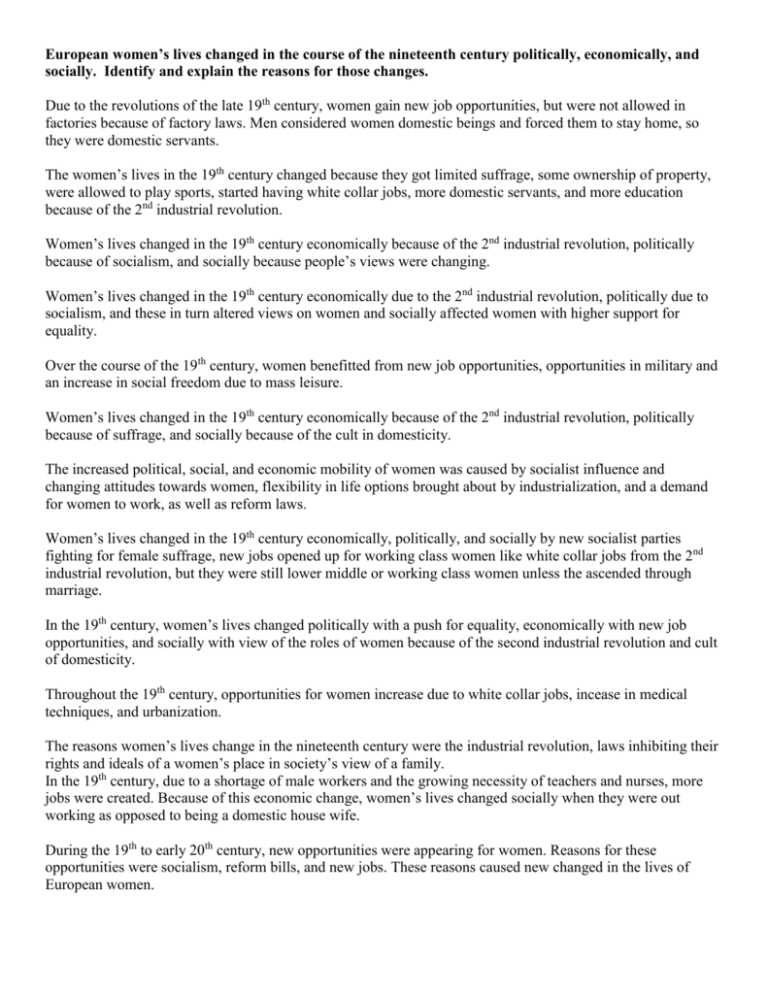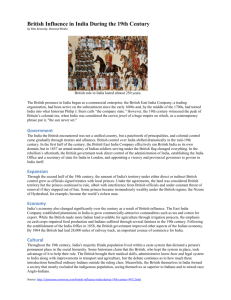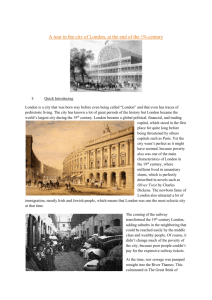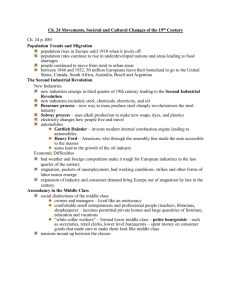Due to the revolutions of the late 19th century, women gain new job
advertisement

European women’s lives changed in the course of the nineteenth century politically, economically, and socially. Identify and explain the reasons for those changes. Due to the revolutions of the late 19th century, women gain new job opportunities, but were not allowed in factories because of factory laws. Men considered women domestic beings and forced them to stay home, so they were domestic servants. The women’s lives in the 19th century changed because they got limited suffrage, some ownership of property, were allowed to play sports, started having white collar jobs, more domestic servants, and more education because of the 2nd industrial revolution. Women’s lives changed in the 19th century economically because of the 2nd industrial revolution, politically because of socialism, and socially because people’s views were changing. Women’s lives changed in the 19th century economically due to the 2nd industrial revolution, politically due to socialism, and these in turn altered views on women and socially affected women with higher support for equality. Over the course of the 19th century, women benefitted from new job opportunities, opportunities in military and an increase in social freedom due to mass leisure. Women’s lives changed in the 19th century economically because of the 2nd industrial revolution, politically because of suffrage, and socially because of the cult in domesticity. The increased political, social, and economic mobility of women was caused by socialist influence and changing attitudes towards women, flexibility in life options brought about by industrialization, and a demand for women to work, as well as reform laws. Women’s lives changed in the 19th century economically, politically, and socially by new socialist parties fighting for female suffrage, new jobs opened up for working class women like white collar jobs from the 2nd industrial revolution, but they were still lower middle or working class women unless the ascended through marriage. In the 19th century, women’s lives changed politically with a push for equality, economically with new job opportunities, and socially with view of the roles of women because of the second industrial revolution and cult of domesticity. Throughout the 19th century, opportunities for women increase due to white collar jobs, incease in medical techniques, and urbanization. The reasons women’s lives change in the nineteenth century were the industrial revolution, laws inhibiting their rights and ideals of a women’s place in society’s view of a family. In the 19th century, due to a shortage of male workers and the growing necessity of teachers and nurses, more jobs were created. Because of this economic change, women’s lives changed socially when they were out working as opposed to being a domestic house wife. During the 19th to early 20th century, new opportunities were appearing for women. Reasons for these opportunities were socialism, reform bills, and new jobs. These reasons caused new changed in the lives of European women. In the 19th century women had more opportunities to enter some professions and to work in new settings like offices. The expanded middle class also led to significant increases in the number of women working as domestic servants. However, as the spheres of work and home life became increasingly defined by distinct gender roles and expectations, many women found their lives limited by the ideals of the cult of domesticity.









